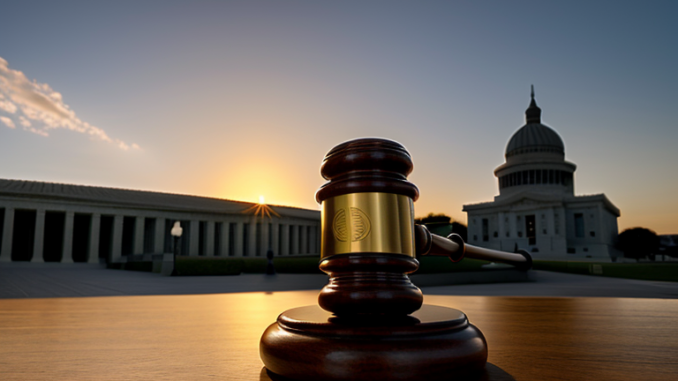
The U.S. Supreme Court has announced that it will hear a case involving Coinbase, a popular cryptocurrency trading platform based in San Francisco. This decision has important implications for similar disputes and the use of arbitration for resolving conflicts.
At the heart of the matter are conflicting agreements between Coinbase and its users. Users claim that the company violated California’s false advertising law by tricking them into paying to enter a sweepstakes with dogecoin prizes. Coinbase argues that the user agreements require disputes to be resolved through arbitration.
The Supreme Court’s ruling will determine whether a judge or an arbitrator has the authority to decide which agreement is more important in this dispute. This issue has divided legal experts and has significant implications for the future of arbitration.
Coinbase previously appealed a lower court’s ruling that it had given up its right to arbitration. A federal judge in California denied Coinbase’s request for arbitration, leading to the case being filed as a class action lawsuit. The 9th U.S. Circuit Court of Appeals upheld the judge’s decision, setting the stage for the Supreme Court’s involvement.
Interestingly, the Supreme Court previously ruled in favor of Coinbase in a similar dispute in June. The upcoming case will examine whether Coinbase effectively gave up its right to arbitration in this case, which could have major consequences for how companies use arbitration.
Arbitration has become popular among companies as a cheaper and faster alternative to going to court. By resolving conflicts privately, companies can avoid the time and expense of litigation. However, critics argue that arbitration often benefits corporations and limits consumers’ rights and access to justice.
The Supreme Court’s ruling will impact not only Coinbase and its users, but also the future of arbitration in general. It will set a precedent for other companies facing similar disputes, clarifying the enforceability of arbitration clauses in user agreements. Additionally, the decision will determine whether judges or arbitrators have the final say in interpreting and implementing these agreements.
The Coinbase case highlights the complexities of agreements between companies and consumers, especially in the rapidly changing world of cryptocurrency. The outcome of this dispute will have far-reaching effects on the legal landscape, shaping how companies structure user agreements and how users interact with digital platforms.
As the Supreme Court prepares to hear arguments in this important case, legal experts and industry stakeholders eagerly await the ruling that will shape the future of arbitration and define the jurisdiction of disputes involving cryptocurrency exchanges like Coinbase. The decision will have lasting implications, protecting consumer rights and establishing the boundaries of arbitration in the digital age.
In a time when technology and finance intersect, the Supreme Court’s ruling in the Coinbase dispute will bring much-needed clarity and guidance, ensuring fair and transparent mechanisms for resolving conflicts involving all parties. This case represents a crucial moment in the development of cryptocurrency and its legal framework. The industry is closely watching the Supreme Court, as its decision will set a precedent that will shape the future of arbitration and influence the trajectory of the digital landscape.

Be the first to comment